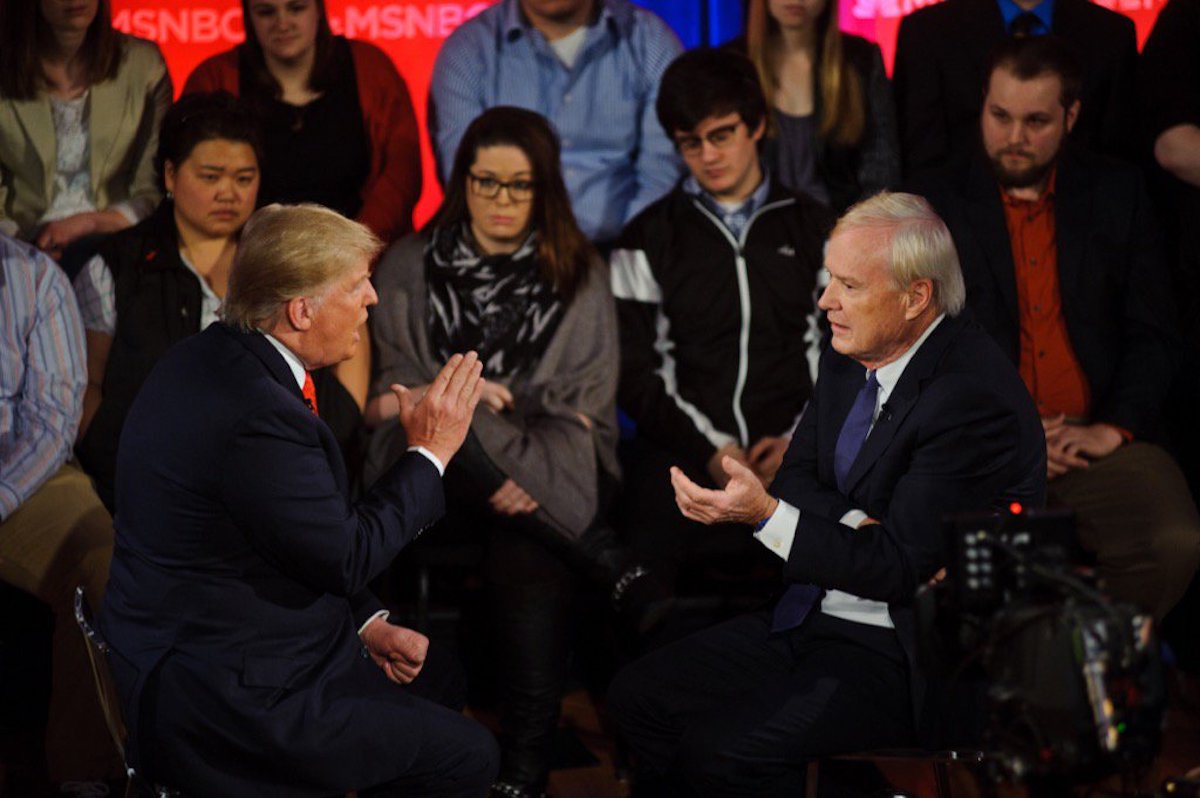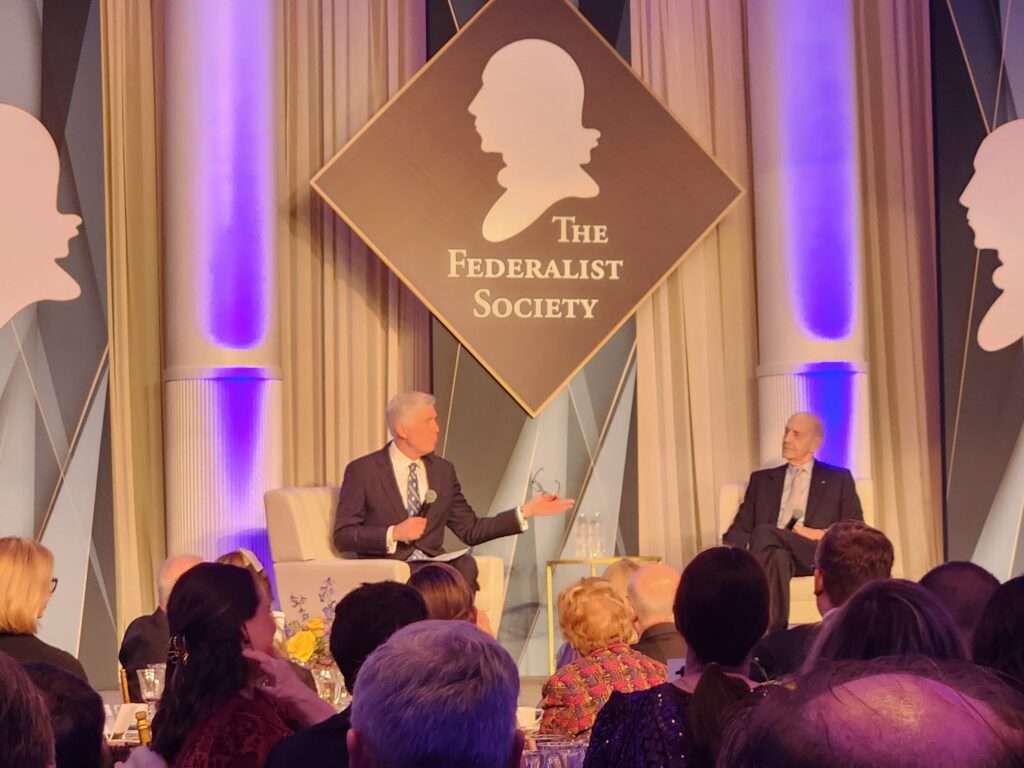
“There needs to be some form of punishment,” Donald Trump can be heard. “For the woman?” I asked in a follow-up. “Yes.”
This is what I asked the Republican presidential candidate in a March 2016 MSNBC town meeting. The question was about what consequences a woman should face who had an abortion. It was before Trump won the Republican presidential nomination, before he appointed three Supreme Court justices who broke Roe vs. Wade, the 1973 ruling that enshrined a constitutional right to have the procedure, and not long after, he abandoned his position favoring legal abortion.
Again:
“There needs to be some form of punishment,” the presidential candidate answered.
“For the woman?” I asked. “Yes,” he answered.
My question was asked during a presidential town meeting in Green Bay just before the 2016 Wisconsin Republican primary. My producer, Robert Zelinger, and I were trying to determine the extent of Trump’s newfound pro-life position. His answer reflected a stronger, more punitive stance than the Catholic church’s position, which supports sanctions against the doctors involved but not women. Indeed, the entire thrust of the pro-life cause was to portray women as victims of abortion and only to seek legal redress against those who perform the procedure. See this piece from Americans United for Life on why women should not be prosecuted.
Here’s what’s interesting: Trump never, as far as I know, personally walked back his position. His campaign people issued the usual denial of what he’d told me and the public town meeting, but he never did.
What struck me back in 2016 was Trump’s motivation. At the same time, he was planning to appoint judges to the Supreme Court; he was intent on harming women, not, as he said recently, “protecting” them. He was pursuing what turned out, thanks to the Supreme Court’s ruling, to be deadly harm, as we’ve seen in so many states in the wake of Dobbs, which has left women with lethal pregnancies scrambling to find medical care in other states.
I have watched this Matthews-Trump interview endless times, especially in battleground states like Pennsylvania, my home state, where I am watching the election returns. It’s a blizzard of my voice. And it became integral to many anti-Trump ads from the Harris-Walz campaign and various SuperPACs. Trump’s pro-punishment position didn’t derail his 2016 bid, of course. And he almost won reelection in 2020, despite it. But the Dobbs decision in 2022 made Democrats believe it could turn the tide in their favor, and they hammered it.Trump clearly angered women who had resented his penal approach, especially those of the boomer generation, who had to endure those years when men were able to engage in sexual relations and, more often than not, shirk any responsibility for the pregnancy they created, leaving a woman to seek an illegal and unsafe procedure or to have the child, often out of wedlock. I suspect this explains part of why women over 65 seem so warm to Harris, at least in early polling. I suspect there was some generational justice at work. Still, as memorable and revealing as Trump’s answer was, it was not enough to stop the Republican nominee from running the map on Election Day 2024.
The post I Asked Trump if Women Should Be Punished for Having an Abortion. He Said, “Yes.” appeared first on Washington Monthly.


 1 week ago
1
1 week ago
1 









 Bengali (Bangladesh) ·
Bengali (Bangladesh) ·  English (United States) ·
English (United States) ·